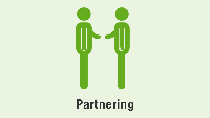Sustainability
“Helping Hands” aid campaign: BASF donates over 100 million protective masks
April 14, 2020
As part of BASF’s “Helping Hands” campaign in the fight against the corona pandemic, BASF is donating 100 million protective masks to the Federal Republic of Germany. The company is also donating 1 million masks to the State of Rhineland-Palatinate.
BASF’s corporate headquarters are located in Ludwigshafen, Rhineland-Palatinate. With around 35,000 employees, it is BASF’s largest production site worldwide. The masks will be purchased in China and prepared for shipment to Germany.
BASF expects the first delivery of masks at Frankfurt Airport at the beginning of next week. There, they will be handed over to the Federal Minister of Health Jens Spahn and the Prime Minister of Rhineland-Palatinate Malu Dreyer. “An emergency situation such as this can only be managed by all of us together,” said Martin Brudermüller, Chairman of BASF’s Board of Executive Directors. “We are therefore using our purchasing networks and logistics in China to help.” BASF is responsible for the costs of purchasing and transporting the masks. The masks will be distributed by the Federal Ministry of Health and, in Rhineland-Palatinate, by the State Office for Social Affairs, Youth and Welfare.
The mask donation is one of several initiatives of BASF’s “Helping Hands” campaign. BASF is committed to fighting the pandemic worldwide with a total of approximately €100 million.

Another focus is the production of hand sanitizer. BASF has created new capacities within a short time at sites such as Ludwigshafen, Düsseldorf and Münster-Hiltrup and is able to produce up to 1 million liters of hand sanitizer with the raw materials purchased. Around 150,000 liters have already been distributed free of charge to hospitals and other healthcare facilities (doctors, nursing homes) in the Rhine-Neckar metropolitan region and around other BASF sites. Throughout Germany, sanitizing products are now also being distributed free of charge via the digital marketplace of the German Chemical Industry Association, VCI, (Emergency Supply Sanitizer). BASF has also started producing hand sanitizer in France, the Netherlands, Switzerland, Spain, Turkey and the United States in order to donate them to fight the virus.
Across the world, BASF currently provides around 175,000 liters of sanitizer per week free of charge. “BASF is closely connected with its neighbors and society at its sites. This help is a matter of course for us. A special thanks goes to the many employees who show exemplary commitment,” said Brudermüller. Thanks are also due to the authorities, which have granted the necessary special permits without red tape. New raw materials, such as bio-ethanol, were also approved for the production of sanitizing products. Previously, BASF did not manufacture hand sanitizer, but sold some raw materials for them.
In addition to the production of hand sanitizer, BASF teams around the world are highly committed to helping the neighborhood around their sites with donations and other activities to alleviate the effects of the corona crisis.
